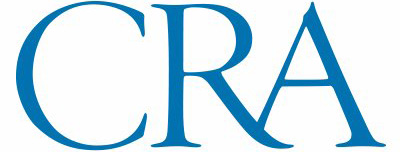About the claim
We are exploring a second collective claim in the Dutch courts against Google, with funding already secured.
The claim pertains to Google’s anticompetitive behaviour in “ad tech”, the various technologies behind online advertising, and would follow the claim brought on behalf of more than 30 European publishers in February 2024.
Ad tech is the technology powering the online ads that billions of consumers encounter in their everyday lives while surfing the web and using their smartphones. The sale of digital advertising has emerged as a primary revenue stream for online content creators. This sector has witnessed remarkable growth, surpassing $490 billion in 2021.
Google is the largest and most significant ad tech vendor at every stageof the value chain, with market shares reachingas high as 90-100%. In response to a complaint by news publishers in 2019, the French Competition Authority determined that Google violated Article 102 of the Treaty on the Functioning of the European Union (“TFEU”), which prohibits undertakings holding a dominant position from abusing it. This violation stemmed from practices aimed at ensuring that (i) Google’s ad server prioritizes Google’s AdX ad exchange and, conversely, (ii) Google’s AdX ad exchange favors its ad server.
According to the decision, Google’s conduct caused significant harm to website owners by depressing their revenue. This harm included depriving them of the ability to benefit from undistorted competition between ad exchanges, which could have pressured Google to lower its very high AdX fees (around 20%). Additionally, it involved diverting impressions from rival ad exchanges that charged a lower revenue share.
In particular, the French authority noted that Google granted preferential treatment to its proprietary technologies offered under the Google Ad Manager brand. This preferential treatment extended to the operation of its publisher ad server DFP (which enables publishers of websites and applications to sell their advertising space) and its supply-side platform AdX (which organizes the auction process allowing publishers to sell their “impressions” or advertising inventories to advertisers). Such preferential treatment was to the detriment of both its competitors and publishers.
News media were negatively affected at a time when their economic model was already weakened by the decline in sales of print subscriptions and the decline in associated advertising revenue.
This kind of conduct by a company in a dominant position is manifestly contrary to competition law. Anyone who suffers damages from such illegal behaviour can claim compensation in court.
Q&A
What is ad tech?
Ad tech is the technology powering the online ads billions of consumers see in their everyday lives when surfing the web and using their smartphones. Digital advertising has experienced spectacular growth, exceeding $ 490 billion in 2021. Selling digital advertising has become a key source of revenue for publishers of online content.
What is being done against Google’s behaviour globally?
This is not the only case addressing Google’s anticompetitive conduct in ad tech. The following action has been taken or is currently ongoing:
- The French competition authority issued a decision in June 2021, imposing a penalty of EUR 220 million. It found that Google abused its dominant position in the advertising server market by giving preferential treatment to its own proprietary technologies, thereby disadvantaging its smaller competitors. Google agreed not to contest the French competition authority’s findings.
- The UK competition authority (CMA) identified significant issues in the ad tech sector in its July 2020 Final Report on Online advertising. It launched an antitrust investigation into Google’s conduct in ad tech in May 2022 which is currently ongoing. Separately, a collective action was brought against Google on behalf of all UK-based publishers, on which Geradin Partners is instructed alongside Humphries Kerstetter and Hausfeld.
- The European Commission issued a statement of objections against Google in June 2023, finding provisionally that Google abused its dominant position in breach of EU competition law. Google filed its defence against these provisional findings in December 2023.
- In the U.S., a group of State Attorneys General led by the State of Texas have brought a lawsuit against Google for its ad tech practices in December 2020. In January 2023, the U.S. Department of Justice brought its own civil lawsuit against Google alongside the case brought by the State AGs. Both cases are ongoing.
- More than 30 European publishers brought a claim for damages against Google on 28 February 2024.
Who can join?
Anyone with a website that relies (or relied) on Google’s ad tech services such as Ad Manager (previously DoubleClick for publishers) and that is based in Europe has potentially suffered damage from Google’s infringement.
Why a funded claim?
A significant contingent of our group of claimants are news media. We are acutely aware of the financial situation many news publishers find themselves in. We understand from publishers that they see a value in moving against a large player like Google together.
Why the Netherlands?
The Netherlands offers a key combination of attractive factors for a claim like the present one. It allows for claims to be assigned to an SPV, which ensures that a group of claimants can move together as one in an efficient manner. This includes claims from publishers based outside the Netherlands. The Netherlands also allows for third-party funding of such claims.
What are the benefits of a funded claim?
The key benefit is that publishers who join the claim do not face any financial downside risk. Normally, if a claimant sues Google, they would have to pay their own legal costs. In most continental European jurisdictions, even if the claimant is successful, they would only have a fraction of their costs compensated by the defendant.
To put it simply, publishers are able to seek compensation for the significant damage incurred without the need to spend significant amounts of money and management time on the claim.
Why are you using an SPV as the claimant?
An SPV offers considerable benefits, since once the various claimants have assigned their claims to the SPV, the SPV can act as a single claimant against Google. The SPV model is therefore highly efficient, compared to a model where all claimants are required to make their own decisions as to each step in the proceedings.
Can any website owner join your claim?
Our aim is for this claim to be open to any online content publisher who suffered harm from Google’s actions. However, we do not intend for the claim to include publishers of offensive materials. It may also be necessary to apply a minimum threshold in advertising revenue for the claim to remain manageable.
What are my own damages?
Once you have registered we can share tools that will allow you to understand approximate damages.
How much work will be involved for our business?
The work is mostly limited to providing data to our economists and potentially providing some of your agreements with Google. In the present case, the damages are directly linked to advertising revenues, so this data should hopefully be readily available. By comparison to other competition cases, the work should not be too onerous. You will for example not receive detailed questionnaires from the Court in the way the European Commission seeks information.
Can you explain how assigning our claim will work in practice?
Further detail will be provided to those publishers who register and decide to join.
About us

Geradin Partners has unrivalled expertise on ad tech. Geradin Partners acted for News Corp as the lead complainant in the French Competition Authority investigation that led to the adoption of the French Competition Authority decision. Geradin Partners also represented the European Publishers Council in the CMA’s investigation into Google’s Privacy Sandbox browser changes, and in filing a formal complaint with the European Commission on Google’s ad tech practices in February 2022. Geradin Partners have authored extensively on ad tech and their papers have been cited by the CMA and the Australian Competition & Consumer Commission. The Geradin Partners team consists of Damien Geradin, Stijn Huijts, Ruben Elkerbout, David Gallagher, Mattijs Baneke and a team of associates across the firm’s Amsterdam, Brussels and London offices.

Charles River Associates (CRA) is a leading provider of antitrust economics advice across the globe. CRA is recognised for rigorous economic and empirical analyses accessible to specialists and non-specialists, before agencies and courts. CRA has extensive experience in developing antitrust theories of harm and estimating damages in the technology sector and advised complainants and agencies in multiple matters involving Google. The team is led by Oliver Latham and Mikaël Hervé.

LitFin is an expert in complex litigation funding, focusing on damages compensation in various antitrust cases, arbitrations, insolvency and related activities. LitFin is one of the major litigation funders in the EU. By offering comprehensive litigation financing services, LitFin enables companies to pursue valuable legal claims while continuing to focus on core operations. Some of the prominent cases LitFin is currently funding include:
- Funding claims of thousands of investors damaged in the Wirecard scandal.
- A group claim of 5 comparison-shopping services damaged in the so called Google Shopping case.
- A claim on behalf of over 2,000 farmers damaged by the pesticide cartel in Germany.